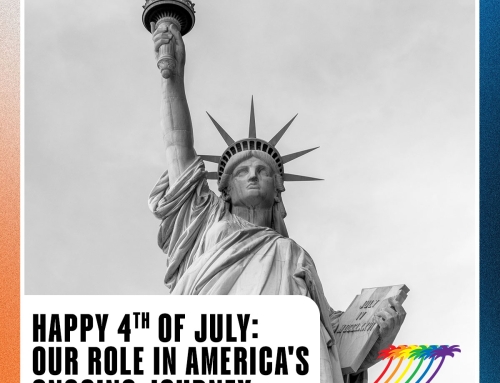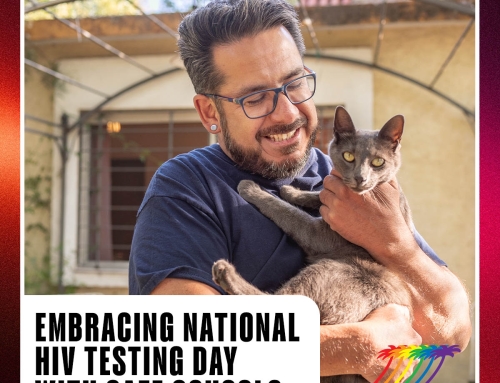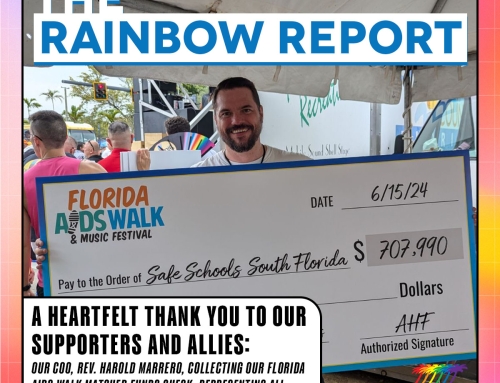The Rainbow Report – The Imperative of Celebrating LGBTQ+ History Month 🌈
“The opposite of the past is not the future but the absence of future; the opposite of the future is not the past but the absence of past. The loss of one is equivalent to the sacrifice of the other.” – Elie Wiesel
History is not just a record of past events; it is a testament to human resilience, innovation, and the evolution of societies. Every community, every individual, contributes to the rich tapestry of human history. Yet, not all histories are given the same platform or recognition. This is particularly true for the LGBTQ+ community, whose contributions and struggles have often been sidelined, if not outright erased.
The decision by the Miami-Dade County Public School Board to not celebrate LGBTQ+ History Month is a stark reminder of the challenges the queer community still faces. It underscores the importance of acknowledging and celebrating our diverse history, not just for the LGBTQ+ community, but for society at large.
Elie Wiesel, in his Nobel Lecture from December 11, 1986, poignantly stated, “Remembering is a noble and necessary act. The call of memory, the call to memory, reaches us from the very dawn of history.” This sentiment resonates deeply with the essence of celebrating LGBTQ+ History Month. Wiesel emphasized the significance of memory, noting, “It is incumbent upon us to remember the good we have received, and the evil we have suffered.” For the LGBTQ+ community, this act of remembering is not just about honoring the past but ensuring a brighter, more inclusive future.
Why Celebrate LGBTQ+ History?
- Recognition of Contributions: The LGBTQ+ community has made significant contributions in every field, from arts and sciences to politics and social justice. By celebrating these achievements, we not only honor these individuals but also inspire future generations to break barriers and make their mark.
- Understanding Struggles: The journey towards acceptance and rights for the LGBTQ+ community has been fraught with challenges. Recognizing these struggles is crucial for understanding the broader human rights movement and ensuring that history does not repeat itself. As Wiesel warned, “the rejection of memory becomes a divine curse, one that would doom us to repeat past disasters…”
- Building Bridges: Celebrating LGBTQ+ history is not just about looking back; it’s about building a future. By understanding our past, we can foster empathy, build bridges, and create a more inclusive society.
Safe Schools’ Commitment to LGBTQ+ History
At Safe Schools, we understand the transformative power of knowledge. We believe that by educating our youth about the diverse history of the LGBTQ+ community, we can foster understanding, acceptance, and unity. This October, we are taking up the mantle of celebrating LGBTQ+ History Month with fervor and dedication. We are choosing to resist creatively.
Our commitment is not just about countering a decision made by a school board. It’s about ensuring that every young person knows that they are a part of a rich history, that they belong, and that they matter. We aim to show that the LGBTQ+ community will not be silent, will not be erased, and will not be banned from public spaces.
Join Us in October
As we delve into the myriad contributions of LGBTQ+ individuals and explore how our history has woven into the broader tapestry of the West, we invite you to join us. Let’s celebrate, learn, and look forward to a future where every history is recognized and every voice is heard. Remembering, as Wiesel so eloquently put it, is indeed a noble and necessary act.
By: Harold Marrero
Chief Operating Officer
We encourage you to share this information with friends, fellow teachers, and allies and join us in bringing awareness to our efforts. Your support is essential for our ongoing work to create safe spaces for all students, regardless of ethnicity, gender, sexual orientation, or expression. Please consider donating to Safe Schools so that we can continue advocating for inclusivity and diversity within the education system.







